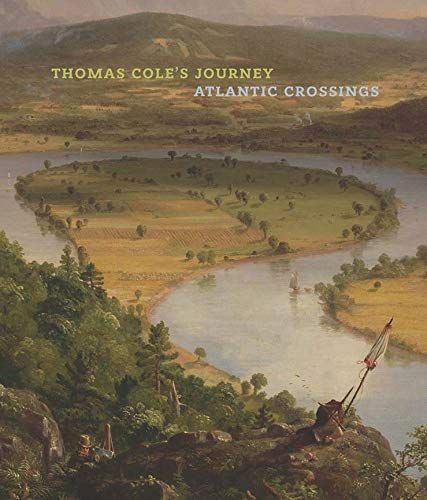
Thomas Cole's Journey Atlantic Crossings
Thomas Cole (1801–1848) is celebrated as the greatest American landscape artist of his generation. Though previous scholarship has emphasized the American aspects of his formation and identity, never before has the British-born artist been presented as an international figure, in direct dialogue with the major landscape painters of the age. Thomas Cole’s Journey emphasizes the artist’s travels in England and Italy from 1829 to 1832 and his crucial interactions with such painters as Turner and Constable. For the first time, it explores the artist’s most renowned paintings, The Oxbow (1836) and The Course of Empire cycle (1834–36), as the culmination of his European experiences and of his abiding passion for the American wilderness. The four essays in this lavishly illustrated catalogue examine how Cole’s first-hand knowledge of the British industrial revolution and his study of the Roman Empire positioned him to create works that offer a distinctive, even dissident, response to the economic and political rise of the United States, the ecological and economic changes then underway, and the dangers that faced the young nation. A detailed chronology of Cole’s life, focusing on his European tour, retraces the artist’s travels as documented in his journals, letters, and sketchbooks, providing new insight into his encounters and observations. With discussions of over seventy works by Cole, as well as by the artists he admired and influenced, this book allows us to view his work in relation to his European antecedents and competitors, demonstrating his major contribution to the history of Western art.